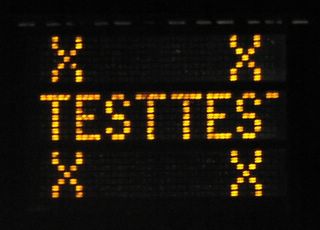What’s your family situation? I am a husband to my wife and a dad to my three young kids.
Where do you live? In the suburbs of New York.
Have you always lived in the New York area?
No. I have lived in (alphabetically) France, Japan, the Netherlands, Switzerland and the U.S.; but mostly the U.S. I’ve lived or spent substantive time in Alabama, Arkansas, Connecticut, Georgia, New Jersey, New York, Tennessee and Wisconsin; but mostly New York. My roots for the past several generations are in New York and Tennessee. Before that, mostly Germany with some England and a bit of Ireland for good measure.
That’s a lot of countries. How are your language skills?
My English is practically fluent.
Are you a fourth generation Jewish American Republican?
Yes, I am a fourth generation Jewish American Republican. What an odd question.
What do you do for a living?
I run a small management consulting business for healthcare organizations. I also analyze healthcare organizations for investors.
What about sports?
My sports career peaked in high school. Or perhaps it was when I captained my class to a third-grade newcombe team victory.
What are your musical abilities?
I cannot carry a tune. But that does not stop me from trying. One score and seven years ago I gave the sax a shot. Wasn’t very successful. In recent years I’ve listened to a lot of Raffi. And I help out a music education non-profit, but not as much as I should.
I can whistle by cupping my two hands into a ball and blowing in through the thumbs. I cannot whistle by sticking two fingers into the sides of my mouth. Nor can I raise one eyebrow at a time.
Do you have any hidden talents?
I am adept at flipping a canoe upside-down onto my shoulders.
Anything else you like doing?
Trying to solve cryptic crossword puzzles. At times I’ll zero in on a random word I see in a newspaper and try in my head to come up with a creative cryptic definition for the word.
Why do you blog?
I’ve given various people various reasons, each of which I suppose has some element of truth:
- Procrastination
- Therapy for the writer, since there are no readers
- An outlet for my ranting so that my wife doesn’t need to suffer through it
- Vanity
- At times I’ve got something interesting to say.
Have you ever picked up packages in the Wanegan at gabbercom? Yes. Indeed, I have. What an odd question, again.
Who were the first bloggers you started reading regularly? Andrew Sullivan, Glenn Reynolds, Mindles Dreck.
A writer at the Nashville Scene's Pith in the Wind has linked via his name to this blog. Is he you?No. But
he tells me he is a regular reader.
Do you know him?Know him? I've had lunch with him.
Anything else we should know about you?If you have any questions,
e-mail me. Any e-mail sent to this address will be assumed to be for publication unless you specify otherwise.
* * * * * * * * * * * * * * * * * * * * * * * * * * * * * *
Note: This Q & A entry was written in late 2004 (despite its date stamp) and is occasionally updated without notice.
To return to David M’s main blog, click here.










 Syndicate this site
Syndicate this site


